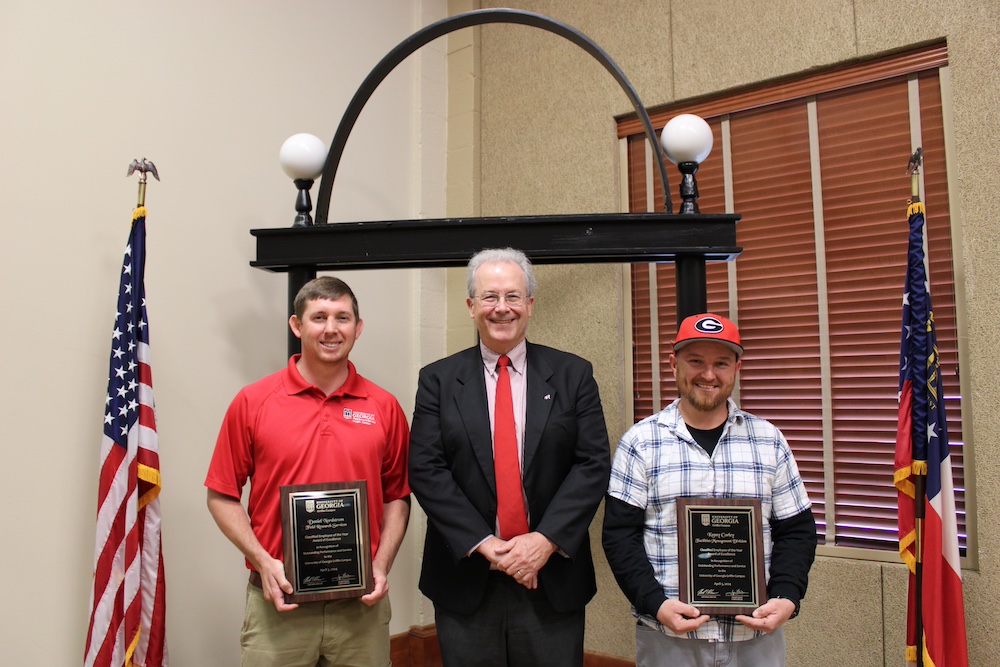"It was passed unanimously," said David Bridges, the UGA College of Agricultural and Environmental Sciences' assistant dean for the Tifton campus. "This was a big hurdle."
The new agriscience and emerging technologies major will be convenient for south Georgia students. Offered only on the UGA Tifton campus, it would be available to anyone entering UGA.
The UGA CAES will work in partnership with Abraham Baldwin Agricultural College in Tifton. In the past, agricultural students have been able to get only an associate degree at ABAC. Students wanting a four-year UGA degree have had to move to Athens to continue their agricultural education.
With the new major, though, students can take courses required for the first two years at ABAC. Once they finish their ABAC degree, they can transfer to UGA and attend classes in Tifton, not Athens. The students become UGA students in Tifton and would have to meet university standards and requirements.
"With this degree, prospective UGA students will be able to take full advantage of the people, facilities and resources on the UGA Tifton campus," Bridges said. "This will also offer us (UGA) a unique opportunity to partner with ABAC."
About 80 percent of the students in the ABAC college transfer program expressed interest in the new program. And of the more than 900 south Georgia high school biology students who returned a survey, with more than 35 percent expressed interest.
The major will enable students around the Southeast to study the latest in agricultural sciences and technologies.
"Students will be able to live and learn in southwest Georgia, one of the world's largest agricultural classrooms," Bridges said.






